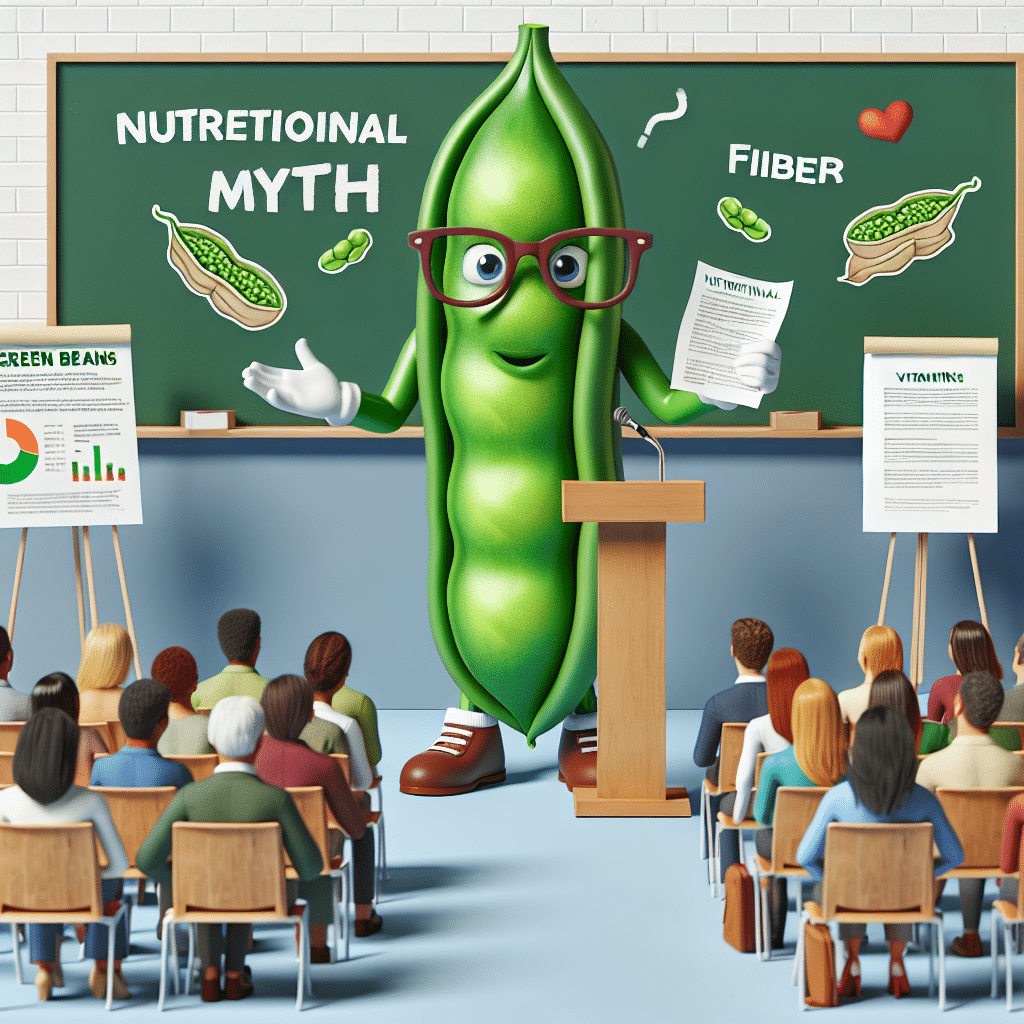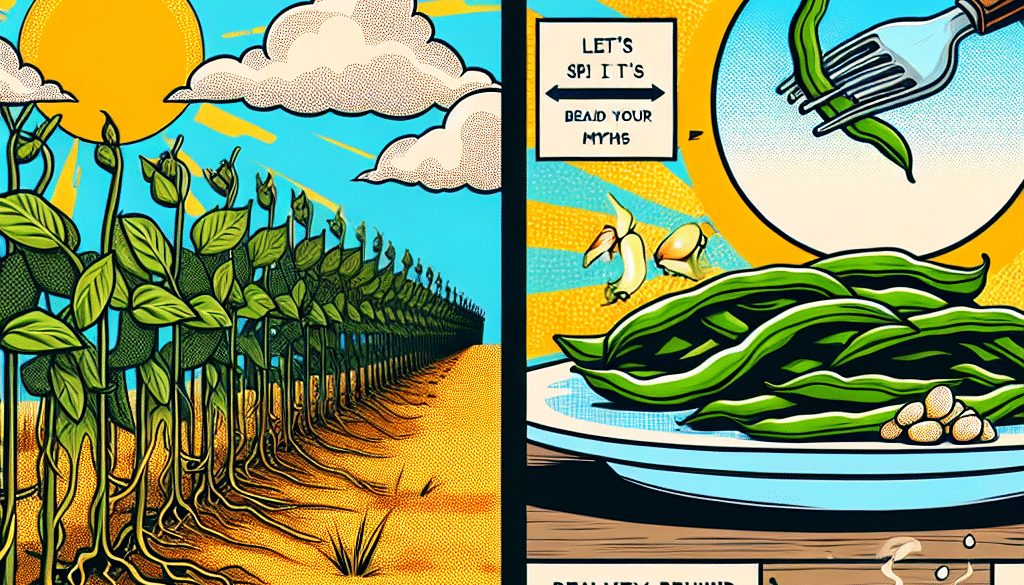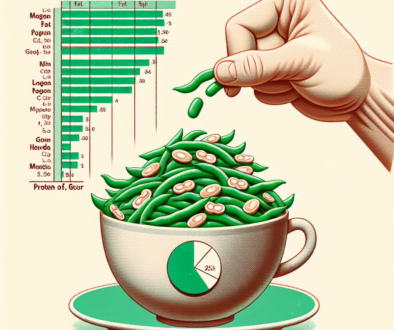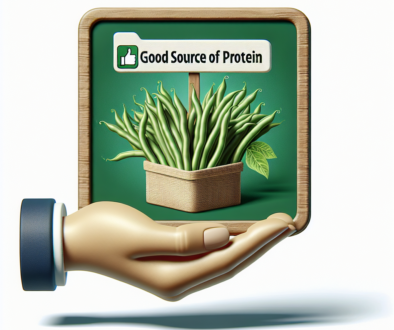Nutritional Myths: Debunking Green Bean Misconceptions
-
Table of Contents
- Nutritional Myths: Debunking Green Bean Misconceptions
- Myth 1: Green Beans Are Not as Nutritious as Other Vegetables
- Myth 2: Canned Green Beans Are Nutritionally Inferior to Fresh Ones
- Myth 3: Green Beans Are High in Sodium
- Myth 4: Green Beans Cause Digestive Issues
- Myth 5: Green Beans Are Bland and Unappealing
- Conclusion: Embracing the Nutritional Power of Green Beans
- Discover ETprotein’s High-Quality Protein Products
Nutritional Myths: Debunking Green Bean Misconceptions

Green beans, also known as string beans or snap beans, are a staple in many diets around the world. They are known for their versatility in dishes, from salads to casseroles, and are often touted for their health benefits. However, as with many foods, misconceptions and myths can cloud the truth about their nutritional value. In this article, we will explore and debunk some of the common myths surrounding green beans, providing a clearer understanding of their place in a healthy diet.
Myth 1: Green Beans Are Not as Nutritious as Other Vegetables
One common misconception is that green beans are not as nutritious as other vegetables. This myth likely stems from the fact that green beans are often seen as a side dish rather than the main event. However, green beans are packed with nutrients.
- Vitamins: They are a good source of vitamins A, C, and K.
- Minerals: Green beans contain minerals such as calcium, iron, magnesium, and potassium.
- Fiber: They are high in dietary fiber, which is essential for digestive health.
- Antioxidants: Green beans have a variety of antioxidants, including flavonoids and carotenoids.
Studies have shown that green beans can contribute to a healthy diet just as much as other celebrated vegetables. For example, a study published in the Journal of the Academy of Nutrition and Dietetics found that green beans are a significant source of antioxidants, which are important for preventing oxidative stress and reducing the risk of chronic diseases.
Myth 2: Canned Green Beans Are Nutritionally Inferior to Fresh Ones
Another myth is that canned green beans are nutritionally inferior to fresh green beans. While it’s true that the canning process can lead to some loss of water-soluble vitamins like vitamin C, canned green beans still retain most of their nutrients. In fact, the canning process can even increase the concentration of certain nutrients, such as lycopene.
Moreover, canned green beans are often more accessible and affordable than fresh ones, making them a valuable option for many people. A study by the Linus Pauling Institute found that canned green beans are a convenient and cost-effective way to increase vegetable intake, especially for individuals with limited access to fresh produce.
Myth 3: Green Beans Are High in Sodium
There is a belief that green beans are high in sodium, particularly when canned. While it’s true that some canned green beans can be high in sodium due to added salt, many brands offer low-sodium or no-salt-added options. Additionally, draining and rinsing canned green beans can reduce their sodium content by as much as 41%, according to research published in the Journal of Food Science.
Fresh and home-cooked green beans contain very little sodium naturally, making them an excellent choice for those watching their sodium intake. The key is to be mindful of how green beans are prepared and seasoned.
Myth 4: Green Beans Cause Digestive Issues
Some people believe that green beans can cause digestive issues due to their high fiber content. While it’s true that a sudden increase in fiber intake can lead to discomfort, gradually incorporating green beans into the diet allows the digestive system to adjust. The fiber in green beans is actually beneficial for gut health, promoting regular bowel movements and preventing constipation.
A study in the World Journal of Gastroenterology suggests that a diet rich in fiber from vegetables like green beans is associated with a lower risk of digestive disorders, including colorectal cancer.
Myth 5: Green Beans Are Bland and Unappealing
Another myth is that green beans are bland and unappealing, which may deter some from including them in their diet. However, the flavor of green beans can vary greatly depending on how they are cooked. When prepared properly, green beans can be delicious and satisfying.
Experimenting with different cooking methods, such as steaming, roasting, or sautéing, and adding herbs and spices can enhance the flavor of green beans. They can also be incorporated into a variety of dishes, from stir-fries to soups, making them a versatile and enjoyable vegetable.
Conclusion: Embracing the Nutritional Power of Green Beans
In conclusion, green beans are a nutritious and versatile vegetable that can play a valuable role in a balanced diet. By debunking the myths surrounding their nutritional value, we can appreciate the many benefits they offer. Green beans are not only rich in vitamins, minerals, fiber, and antioxidants but are also accessible in various forms, including fresh, frozen, and canned. With a little creativity in the kitchen, they can be transformed into a flavorful and appealing part of any meal.
As we strive for healthier eating habits, it’s important to recognize the potential of all vegetables, including green beans, and to incorporate them into our diets in ways that are both nutritious and enjoyable.
Discover ETprotein’s High-Quality Protein Products
If you’re looking to complement your healthy diet with high-quality protein products, consider ETprotein’s offerings. ETprotein is a reputable protein Chinese factory manufacturer and supplier known for producing organic bulk vegan protein and plant proteins. Their products, including Organic rice protein, clear rice protein, pea protein, clear pea protein, pumpkin seed protein, sunflower seed protein, and mung bean protein, are characterized by a neutral taste and are non-GMO and allergen-free.
ETprotein caters to a diverse range of industries, serving nutraceutical, pharmaceutical, cosmeceutical, veterinary, as well as food and beverage finished product distributors, traders, and manufacturers across the globe. With a specialization in exporting and delivering tailor-made protein powder and finished nutritional supplements, ETprotein covers sectors like Food and Beverage, Sports Nutrition, Weight Management, Dietary Supplements, Health and Wellness Products, and Infant Formula.
As a trusted company by leading global food and beverage brands and Fortune 500 companies, ETprotein reinforces China’s reputation in the global arena. For more information or to sample their products, please contact them and email sales(at)ETprotein.com today.
About ETprotein:
ETprotein, a reputable protein Chinese factory manufacturer and supplier, is renowned for producing, stocking, exporting, and delivering the highest quality organic bulk vegan protein and plant proteins. They include Organic rice protein, clear rice protein, pea protein, clear pea protein, pumpkin seed protein, sunflower seed protein, mung bean protein, etc. Their offerings, characterized by a neutral taste, non-GMO, allergen-free attributes, cater to a diverse range of industries. They serve nutraceutical, pharmaceutical, cosmeceutical, veterinary, as well as food and beverage finished product distributors, traders, and manufacturers across Europe, USA, Canada, Australia, Thailand, Japan, Korea, Brazil, and Chile, among others.
ETprotein specialization includes exporting and delivering tailor-made protein powder and finished nutritional supplements. Their extensive product range covers sectors like Food and Beverage, Sports Nutrition, Weight Management, Dietary Supplements, Health and Wellness Products, and Infant Formula, ensuring comprehensive solutions to meet all your protein needs.
As a trusted company by leading global food and beverage brands and Fortune 500 companies, ETprotein reinforces China’s reputation in the global arena. For more information or to sample their products, please contact them and email sales(at)ETprotein.com today.














